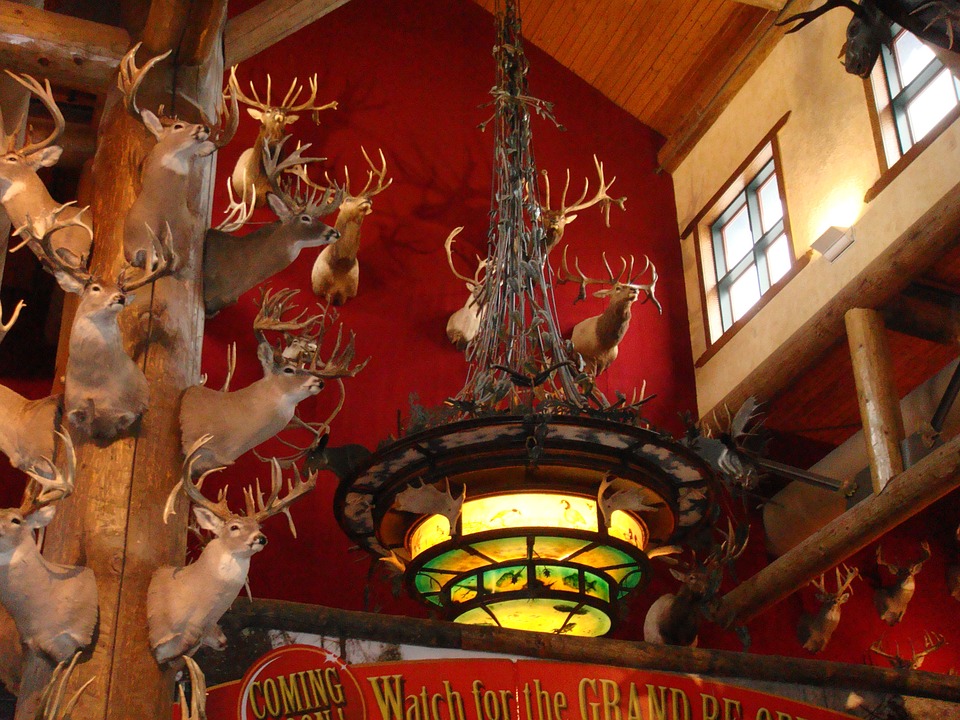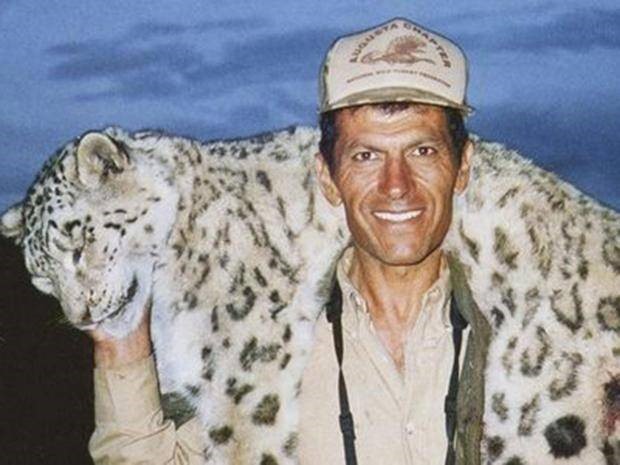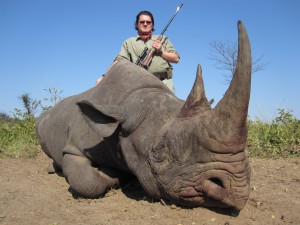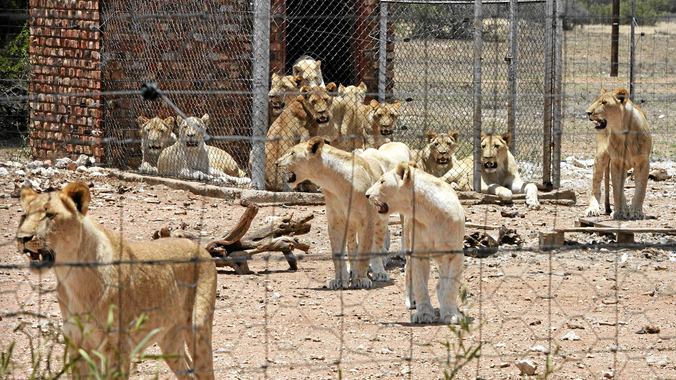Is Trophy Hunting Ethical?
Why Trophy Hunting is in the news
Trophy hunting is defined as the hunting (killing) of an animal purely for the sport, and not for need. Often the animal parts are displayed to boast of the trophy hunt’s success.
Image of Deer Trophies.
This past week the President of the United States proposed to lift the ban on the import of elephant trophies. After much public outcry, he has decided to delay the decision. This news thrusted back into the spotlight the plight of elephants.
In another recent example of trophy hunting, a wealthy American hunter had his image posted all over social media with a dead snow leopard draped over his shoulder. While the image is more than 30 years old, it again highlights the plight of many species. With only a population of as low as 3,500 left nature, this particular killing of a wild snow leopard most likely contributed to the decline of this species. Again, this is just another contributing factor to the Earth’s sixth mass extinction and how humans are directly responsible for the environmental crisis we find ourselves in.
 Image of hunter holding a rare snow leopard killed almost 30 years ago.
Image of hunter holding a rare snow leopard killed almost 30 years ago.
What are the pro arguments for trophy hunting?
The mainstream argument supporting trophy hunting is that it brings money to poor regions of the globe. Others will argue that humans should have a right to hunt whatever they wish. Yet, general opinion is the wealth generated from trophy hunts are critical to conservation. Furthermore, supporters argue the money brought into the region actually promotes conservation of targeted species.
For example, in 2015 a healthy male Black rhinoceros was legally killed by a hunter who paid a $350,000 (US) premium. Those supporting the hunt stated by killing surplus male black rhinos, we are preventing inbreeding, supporting population growth, improving breeding performance, stopping bulls from killing each other, and the money goes directly into conservation.

Image of a Black Rhinoceros killed on a trophy hunt.
Throughout the world, many are calling for a ban on trophy hunting. In a recent opinion piece published in the Trends in Ecology and Evolution Journal, Di Minin et al. argue that the outright ban of trophy hunting will:
- Decrease funding for conservation. Sustainable trophy hunts help impoverished regions where ecotourism is not feasible.
- Increase carbon emissions since trophy hunting has a decreased carbon footprint compared to ecotourism.
- Force hunting management to conserve their wildlife. Officials will have incentive to increase and manage larger populations compared to those for ecotourism.
These authors further went on to state trophy hunts in South Africa in 2012 generated $68 million (US) in revenue with:
- $5,635,000 from 635 Cape buffalo
- $1,194,000 from 33 African elephants
- $647,000 from 37 leopards
- $15,270,000 from 617 African lions
- $300,000 from 1 Black rhinoceros
- $5,355,000 from 63 White rhinoceros
The bottom line is, people will pay extreme amounts of money for a trophy hunt. Therefore, the main pro argument to continue its practice is all about money.
What are the con arguments for trophy hunting?
The first con argument is why is it we are selling the lives of endangered species, some critically endangered. For example, the IUCN estimates there are only about 5,000 wild Black rhinoceros left. Yet, instead of moving the bull to another park, or into captivity where we can study him, or bank his genetics, he was auctioned off to the highest bidder. Some find this distasteful.
The outrage of the illegal killing of Cecil the Lion in 2015 by a wealthy United States citizen also brought up many of the negative consequences of trophy hunts. Baiting, using meat or an animal carcass, to lure a lion out of a protected national park is legal in Zimbabwe where Cecil was killed. However, Cecil was killed illegally (details here) and the only reason we know about this particular illegal hunt is because Cecil was a well-known male lion. This example demonstrates how trophy hunting is not well regulated and begs the question of just how many illegal trophy hunts are executed each day. Furthermore, many of the lions hunted in South Africa are ‘canned hunts’, meaning the animals are raised by humans and kept in cages until just before they are killed. There is no ‘sport’ involved.

Image of overcrowding of lions in South Africa, often used for ‘canned hunts.’
In response to the Di Mini paper quoted above, Ripple et al. argue that the idea that ecotourism impacts global greenhouse emissions are minuscule and cannot be linked to impacting biodiversity. Second, the authors argue that promoting trophy hunting, many lesser species will suffer as game parks focus on attracting top dollar for the hunting of large herbivores or carnivores. Additionally, by promoting rapid population growth of larger animals, the impacts on the environment are not known and could lead to habitat destruction.
Finally, another con argument and from a paper published in Nature, scientists have documented trophy hunting and the negative consequence on heritable traits for that species. For example, when bighorn rams are targeted and only the rams with the most impressive set of horns are killed, those traits cannot be passed on to future generations. These trends are even being noticed in African elephants. Calves are being born without tusks, or are producing much smaller tusks over their lifetime. This is directly due to the poaching of elephants with impressive set of tusks and the heritable traits are not passed on to future generations. All having negative consequences to those animals natural life cycle.
Summary
This is not an easy issue for conservationists and hunters alike. An opinion piece published recently by the United Nations Food and Agricultural Organization details the benefits of trophy hunting to conservation and can be read here. The authors, many affiliated with the International Union for Conservation of Nature, details how well managed trophy hunts can help conservation, and help manage populations of endangered species. They further state the outright ban will most likely result in negative consequences for many species.
The most logical answer is, both sides of the issue need to come together and find a reasonable resolution. Like many issues facing so many endangered species, it will take all of us, not some, but ALL of us coming together to find solutions to support and sustain our planet.
